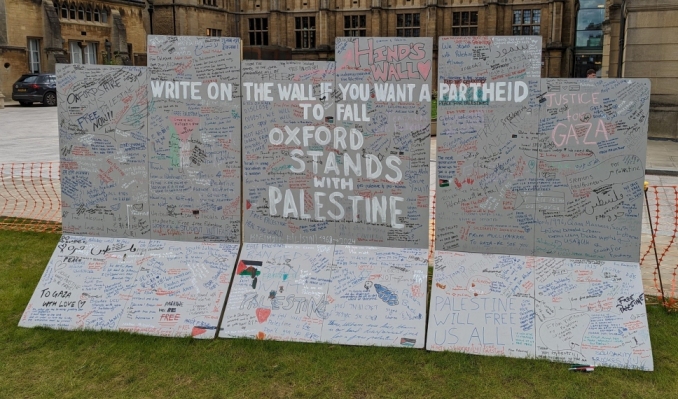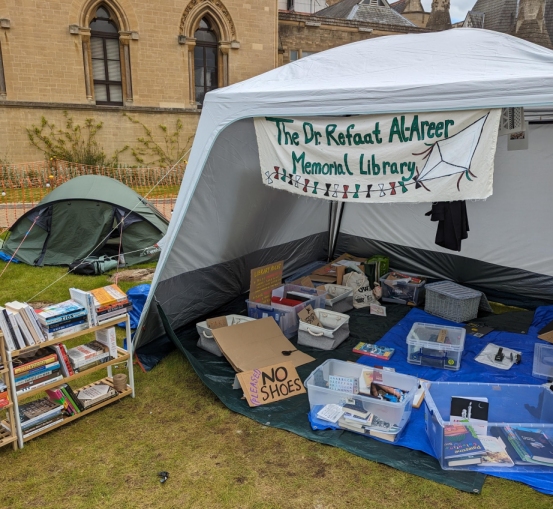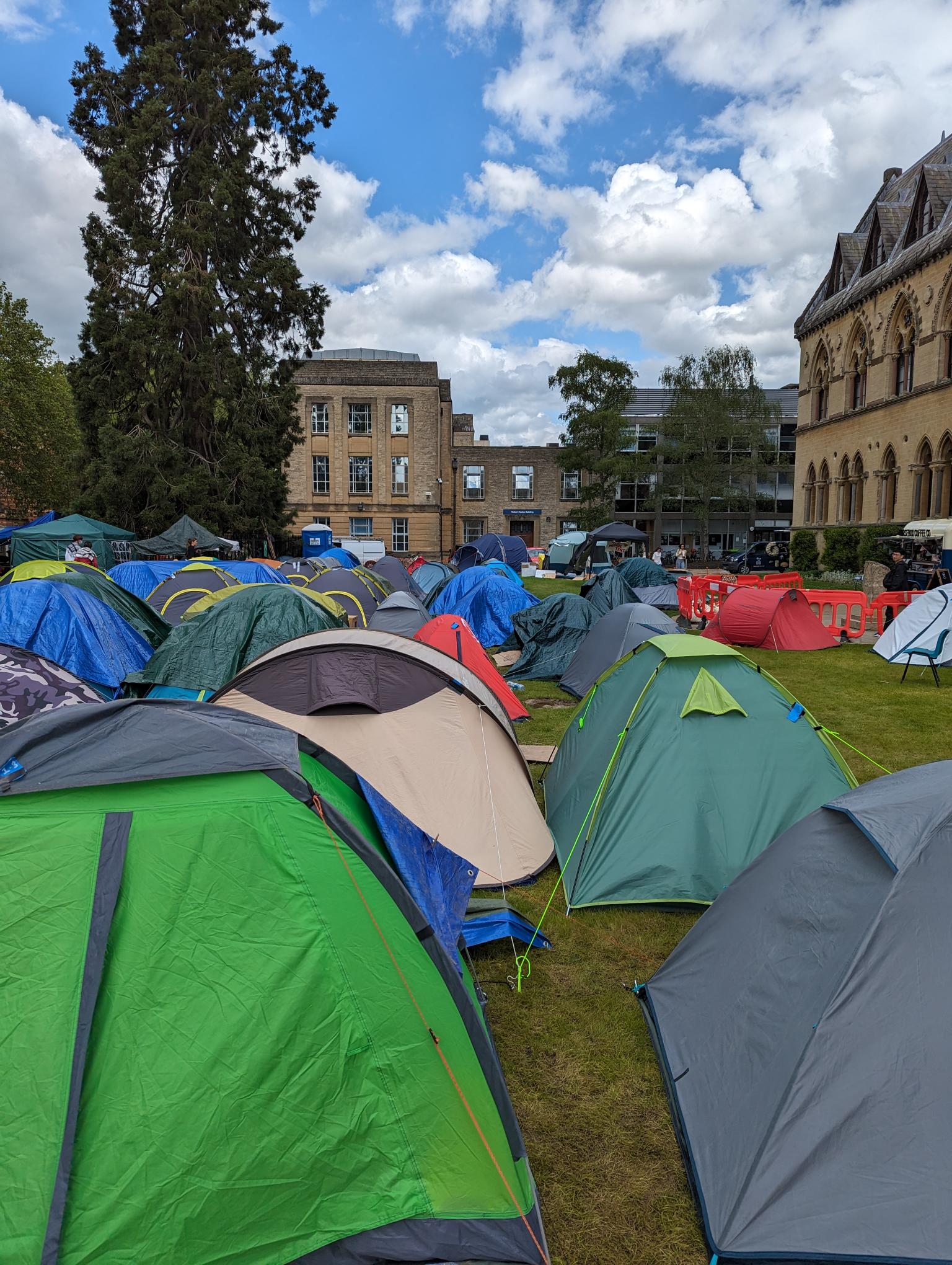
 |
||||
|---|---|---|---|---|
| Volume 54 Number 13, June 8, 2024 | ARCHIVE | HOME | JBCENTRE | SUBSCRIBE |

Since early May, students have set up encampments at universities across Britain and Ireland, following the lead of students at Columbia University in New York City, who began their Gaza Solidarity Encampment on April 17.
Oxford Action for Palestine, made up mainly of students, set up an encampment outside Oxford University's Natural History and Pitt Rivers Museums on May 6 to demand an overhaul of investment policy, including that university-wide assets be disclosed and all arms companies and the university divest from companies complicit in Israeli genocide, apartheid, and occupation. The campaign also calls for boycotting institutional relations, and rebuilding and reinvesting in higher education in Gaza.
Following the university's refusal to speak to the students, they have organised further actions, such as a "die-in" outside the Sheldonian theatre during graduation ceremonies, to highlight the systematic destruction of universities in Gaza, and the establishment of a second encampment outside the iconic Radcliffe Camera library building. "There can be no business as usual while enabling a genocide," say the students.
Workers' Weekly visited the encampment at Oxford University on May 15, the anniversary of Al Nakba.

When you visit the encampment, what immediately strikes you is just how well-organised it is. They have a welcome tent, constantly attended by two or three people, packed with information. And it really is warmly welcoming. This camp is not set up to exclude. They are ready to explain why they are there, what they aim to achieve, what is happening that day. For visiting journalists, there is a media tent. There is a medical tent too, while the food served from the kitchen area is organised through community links. There is even a library. Aside from these, there is a sea of tents where dozens of students have been living for days and now weeks, and a flooring has been laid over the main walkways through the camp. Next to the food area is the all-important open space for socialising and culture, gatherings, discussions, meetings, and teach-ins.
While warm, the atmosphere is serious and determined. "Disclose, divest, we will not stop, we will not rest!" they declare. These are the youth and students taking control of their future, at one with the youth of the world. They deal with every move by the authorities daily, publishing detailed responses and their stand, and publicising their events, on their social media feeds. They have their own thinking and motion and speak in their own name.
These students are part of the New that is struggling to come into being. Their inclusive, diverse spirit, and the ways they are finding to act collectively, represent the seeds of the modern democratic personality that is required so that all can directly decide the crucial matters such as questions of war and peace at this time. This spirit is, at essence, entirely opposed to the antidemocratic personality embodied by the factions of the cartel party system jostling for position as they organise a coup d'etat in the coming general election, mobilising the people as voting cattle around their entirely pro-war agenda.

And the students have been attacked, both in words and physically. On Thursday, May 23, after continued silence from the university authorities, the encampment organised a sit-in protest at the university administration offices to demand that the university meet with them. Vice Chancellor Irene Tracey instead chose to evacuate the building and declare it under lockdown, calling in the police who made sixteen arrests.
According to reports by the Oxford Student, police entered Somerville College and launched a drone from their grounds, until being told "to leave with immediate effect".
Oxford UCU condemned the VC "in the strongest possible terms for bringing in police to violently arrest her own students, engaged in peaceful protest against genocide".
The university authorities accused the protesters of "violent and criminal action". Such talk, painting those opposing the genocidal acts in Palestine as antisemitic, extremist, and violent, is to turn truth on its head. This disinformation has opened the way for sinister forces to move in. On a number of occasions, the camp has been subjected to aggression, including being attacked more than once by individuals armed with knives.
In one such incident, "a small group of individuals aggressively approached our encampment and hurled vulgar antisemitic slurs at our Jewish community member who tried to de-escalate the altercation".
At the same time, the overwhelming response from thousands of students, hundreds of faculty and staff, dozens of college common rooms, several student organisations, the Oxford UCU, and a coalition of Jewish faculty, is of support for the encampment including issuing open letters and statements.
And now, after exactly one month, Oxford Action for Palestine reported on June 6 that the Vice Chancellor and other senior members of the University Administration have finally agreed to meet with students from the encampment. Irene Tracey expressed the desire to work with the students on matters relating to the demands, the students report, and are currently arranging a date and time for discussion.
Workers' Weekly congratulates the Oxford students. Simply to force such a meeting at this time is a success, as is the camp itself and all it has achieved over the past month.